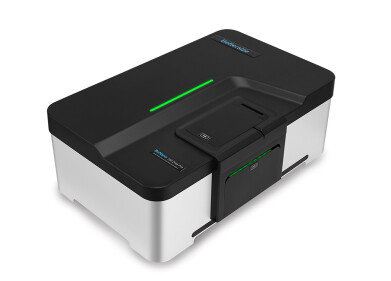Laboratory Products
Blue Light from Your Phone Could Accelerate Aging
Nov 19 2019
New research from Oregon State University suggests prolonged exposure to blue light from devices such as laptops, mobile phones and household appliances could accelerate the ageing process, even if it's not shining directly in the eyes. Using the common fruit fly as a model organism, the team analysed the effect of blue wavelengths created by light-emitting diodes. Also known as Drosophila melanogaster, fruit flies were chosen for the cellular and developmental mechanism similarities they share with humans.
One group of flied was exposed to 12 hours a day of blue light and 12 hours of darkness, a second group was kept in total darkness and a third experienced the 12-hour light/dark cycle with blue wavelengths filtered out. The findings were published in the journal Aging and Mechanisms of Disease and warn that diodes can damage cells in the brain, as well as retinas.
Excess exposure to blue wavelengths accelerates ageing, shortens lifespans
Jaga Giebultowicz, leader of the study and professor of integrative biology at Oregon State University College of Science, explains that daily exposure to 12 hours of blue LED light accelerated the ageing process and shortened the lifespans of fruit flies. Giebultowicz and her colleagues also noted that the fruit flies exposed to prolonged blue light suffered from impaired brain neurons and damage to retinal cells.
"The fact that the light was accelerating aging in the flies was very surprising to us at first," explains Giebultowicz. "We'd measured expression of some genes in old flies, and found that stress-response, protective genes were expressed if flies were kept in light. We hypothesised that light was regulating those genes. Then we started asking, what is it in the light that is harmful to them, and we looked at the spectrum of light. It was very clear cut that although light without blue slightly shortened their lifespan, just blue light alone shortened their lifespan very dramatically."
Interestingly, some of the flies used in the experiment were mutants without eyes. These organisms still suffered from impaired locomotion and brain damage, suggesting blue wavelengths don't need to infiltrate the eyes to cause harm.
Blue light linked to circadian rhythm disruptions
Giebultowicz muses that excess exposure to blue light could disrupt the body's circadian rhythm, which is critical to regulating physiological processes such as cell regeneration, brain wave activity and hormone production. The circadian rhythm also influences sleeping and appetite patterns.
"There is evidence suggesting that increased exposure to artificial light is a risk factor for sleep and circadian disorders," says Giebultowicz.
From extracting and analysing to modelling and predicting, converting data into knowledge is pivitol to scientific advances. For a glimpse of the latest data exploitation techniques being used by laboratories around the world, don't miss 'Lab Informatics at the Centre of Digital Transformation Strategies.'
Digital Edition
ILM 49.5 July
July 2024
Chromatography Articles - Understanding PFAS: Analysis and Implications Mass Spectrometry & Spectroscopy Articles - MS detection of Alzheimer’s blood-based biomarkers LIMS - Essent...
View all digital editions
Events
ACS National Meeting - Fall 2024
Aug 18 2024 Denver, CO, USA
Aug 25 2024 Copenhagen, Denmark
Aug 28 2024 Phnom Penh, Cambodia
Sep 04 2024 Chiba, Tokyo, Japan
Sep 04 2024 University of Warwick, Coventry, UK


















